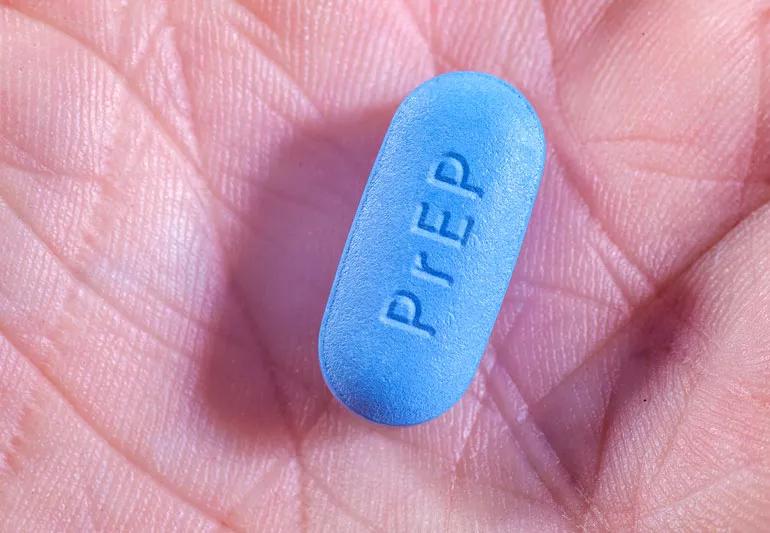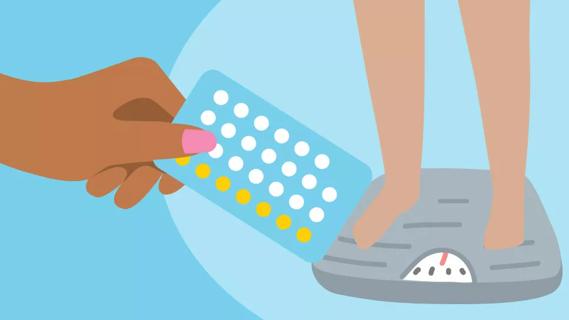Advertisement
Contributing factors include racial disparities, high barriers to care and more

One of the most comprehensive reports on transgender health in America shares staggering statistics: 42% of transgender women in seven major U.S. cities are living with HIV.
Advertisement
Cleveland Clinic is a non-profit academic medical center. Advertising on our site helps support our mission. We do not endorse non-Cleveland Clinic products or services. Policy
In April, the Centers for Disease Prevention and Control, (CDC) released a report on HIV infection, risk, prevention and testing behaviors among 1,608 transgender women who participated in a National HIV Behavioral Surveillance study in 2019 and early 2020.
Internal medicine specialist James Hekman, MD, says these statistics bear out what many healthcare providers already knew and feared: “In terms of risk factors, trans women face a significant number of complex healthcare challenges,” he says.
Dr. Hekman delves deeper into the topic of HIV infection, testing and prevention for transgender women.
The report — which shares study data from 1,608 trans women in Atlanta, Los Angeles, New Orleans, New York City, Philadelphia, San Francisco and Seattle — shows significant racial disparities in trans women’s health across racial lines.
Statistics revealed that 62% of Black transgender women are living with HIV, compared with 35% of Hispanic/Latina transgender women and 17% of white transgender women.
Socioeconomic status, too, plays a role. The report shows that 1 in 6 respondents (63%) lived at or below the federal poverty level, and 42% had experienced homelessness in the past year.
High levels of poverty and unemployment are directly related to the struggles that trans women face in a heteronormative society, Dr. Hekman says — which often drives them to engage in high-risk behavior such as sex work in order to make ends meet.
“Options for employment for trans women may be limited, based on societal discrimination and bias,” he says. “Having limited resources available to maintain their socioeconomic survival, they may turn to high-risk situations like sex work for survival — to prevent homelessness.”
And sex work can increase the likelihood of unsafe sex practices, including diminished condom use. “We know that a lot of times, the exchange of sex for drugs or money is a risk factor for HIV itself,” Dr. Hekman says.
Pre-exposure prophylaxis (PrEP) — a once-daily medication is for people who do not have HIV but may be at high risk for contracting it — is a vital tool for HIV prevention in the LGBTQ+ community. And it’s incredibly effective, having been shown to reduce the risk of getting HIV from sex by more than 90%.
But the study identifies factors that may sway transgender women from taking PrEP.
PrEP use is most common in trans women who have access to trans-competent healthcare providers — but they’re not always easy to find.
“There is a shortage of healthcare providers who know how to provide culturally competent care for trans people,” Dr. Hekman says. “There is also a shortage of resources available to trans individuals.
Marketing for PrEP primarily targets gay and bisexual men — messaging that doesn’t resonate with transgender women. Though the newest study data shows that knowledge of PrEP is high among trans women (92%), it found that only about one-third actually take it
Advertisement
Transgender women who are on hormone replacement therapy (HRT) worry that taking PrEP will interfere. “That’s a longstanding concern,” Dr. Hekman says, “and unfortunately there’s not a lot of study in this area, so there’s not a lot to guide people.”
The key, he says, is for trans women who are on HRT to speak with their doctors about these concerns. “You can do yourself a service by having your sexual health addressed in a clinic where you’re also receiving hormonal therapy,” he says.
Your doctor will work with you to ensure that you can both remain on the correct levels of HRT and protect yourself from HIV.
“Knowing your status is of key importance to an individual’s self-care,” Dr. Hekman says. “It’s also a benefit to the community that people know their status and not unknowingly pass it on.”
Only in knowing your HIV status can you take steps to ensure that you don’t transmit it. So it’s vital that people who learn they are HIV positive get linked to treatment that will help them manage their condition and prevent its transmission.
The actual process of being tested for HIV is simple. You can get tested at many doctors’ offices and community organizations that offer both confidential, anonymous HIV testing.
Medical professionals may perform a test that involves a finger prick or venipuncture (blood collected through a vein, usually inside the elbow or atop the hand) or a buccal swab (swabbing the inside of your cheek).
Rapid tests can provide results in as little as an hour, though you may need additional tests to confirm their accuracy. Lab tests from non-rapid tests are available within a few days and require you to return to the office to receive your results.
When you go in for an HIV test, you may be tested for other sexually transmitted infections (STIs) at the same time. You’ll receive information about how to protect yourself from HIV — and if you test positive for HIV, you’ll receive counseling to help you figure out what to do next.
“With proper care, an individual with HIV is highly unlikely to pass it on,” Dr. Hekman says. “When you’re linked to care, you can get the help you need.”
Dr. Hekman encourages all patients to take steps to prevent HIV exposure. For trans women, in particular, those steps include:
If you think you’ve been exposed to HIV — say, if the condom breaks — you should seek out post-exposure prophylaxis (PEP), an HIV prevention treatment for HIV-negative people who have been exposed to the virus.
Advertisement
“If you come into an ER or clinic with 72 hours, you can be started on therapy that dramatically reduces the likelihood of HIV,” Dr. Hekman explains. “But beyond 72 hours, there’s no benefit.”
Dr. Hekman reminds transgender patients that they, like everyone else, deserve competent, compassionate healthcare — and that such care exists. If you’re not sure where to find it, local LGBTQ+ support organizations are a good starting point for connecting you with doctors in your community.
“We want trans patients to know that they are seen and valued, and that healthcare professionals have improving skillsets in meeting their needs,” he says. “We welcome them, we value them and we’re here for them.”
Advertisement
Learn more about our editorial process.
Advertisement

Local LGBT centers, online directories, visual cues and gender-affirming care or non-discrimination policies can all be helpful resources and cues

This romantic orientation involves little to no romantic attraction to others and exists on a spectrum

The scenarios vary based on how many pills you’ve missed and whether you take a combination pill or progestin-only pill

Despite popular opinion, scientific research shows that most birth control methods don’t contribute to weight gain

Both are needed for a healthy body

Heat starts in your chest and moves up to your neck and face … and then, the sweating begins

While they may not burn calories or cause fevers, these heat waves can make you miserable — but you don’t have to just grin and bear it!

Taking precautions like eating healthy, stopping smoking and getting regular screenings can help protect against breast cancer

Focus on your body’s metabolic set point by eating healthy foods, making exercise a part of your routine and reducing stress

PFAS chemicals may make life easier — but they aren’t always so easy on the human body

While there’s little risk in trying this hair care treatment, there isn’t much science to back up the claims